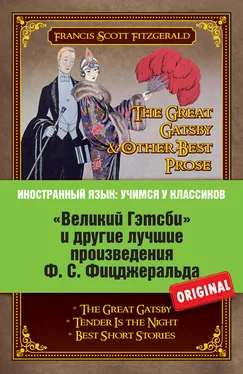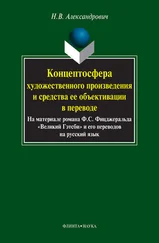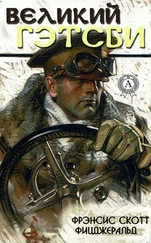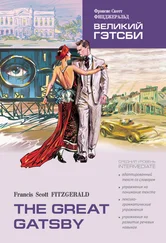Ça va.= OK. (French)
Donnez moi du gin et du siphon.= Bring me gin with siphon. (French)
Bien, Monsieur. – Yes, sir. (French)
The Times fresh from New York– The ‘New York Times,’ the major American newspaper published since 1851
Cessez cela! Allez Ouste!= Stop it! Clear off! (French)
Tour de France– the most important bicycle race held annually in July
allez-vous-en= Go to hell! (French)
Elle doit avoir plus avec moi qu’avec vous.= She must have more with me than with you. (French)
doit avoir= must have (French)
L’amour de famille= family love (French)
Fräulein– miss (German) , here: governess.
Sardinia– an island in Italy, one of the largest in the western Mediterranean
Hapsburg(s)– Habsburgs, royal Austrian family of German origin, one of the main European dynasties from the 15 thcentury till the 20 thcentury
anisette– liqueur or vodka flavoured with anise
Doctor Eliot– Charles William Eliot (1834–1926), American educator, editor and public figure, the president of Harvard University
Finger Lakes (Section)– a group of narrow lakes in west-central New York state; the region is noted for its nature, resorts and parks.
Williams– Roger Williams University in Bristol, R. I., named for Roger Williams (1603–1683), an English colonist and founder of the colony of Rhode Island
Cornell– Cornell University, a higher educational institution in Ithaca, N. Y., founded in 1862; privately endowed by and named for Ezra Cornell, a founder of the Western Union Telegraph Company.
Eau Claire– a city in west-central Wisconsin, first settled in 1846
without a red penny= without money at all
‘Little Women’ (1869)– a most popular novel by Louisa May Alcott (1832–1888), American author
League of Nations– an international organization for cooperation established in 1919 after World War I at the initiative of the United States and Britain
bon mot= a witty remark (French)
Gaelic= Irish
Greenwich Villager– resident of Greenwich Village, a residential area of Lower Manhattan in New York City where writers, artists, students and intellectuals used to live
Hades– in Greek mythology and in the Greek Old Testament, the place where the dead live
the Mississippi River– the largest river in North America, and, together with its tributary, the Missouri, the longest river in the world
New England– a region in the northwest of the USA including six states, the former British colonies; the name was given by Captain Smith in 1614; New England is considered the cradle of American national culture and education.
St. Midas’ School– the author ironically forms the name of the school according to the pattern ‘St. Paul’s school,’ etc.; in Greek and Roman mythology, Midas was a king of Phrygia known for his foolishness and greed.
Boston– a city in the northwest of the United States, on Massachusetts Bay
Chicago– a large city in northwestern Illinois
Victorian– smb. or smth. (art, style, literature, people, etc.) of the time of Queen Victoria (1837–1901)
a Rolls-Pierce– a combination of two car brands – Rolls-Royce and Pierce-Arrow
preparatory school– in the USA, a private school where pupils are prepared for college
the Ritz-Carlton Hotel– here: a luxurious hotel in Boston; Cesar Ritz (1850–1918) had a controlling interest in ten hotels including the Ritz in Paris (1898) and Carlton in London.
Montana– the US state on the US-Canadian border
Brakeman– in the USA, an official in charge of a railway train
protagonist– a chief person in a play, story or real event
the Montana Rockies– the Rocky Mountains in western Montana, the land of high mountains and deep valleys
Croesus (the 6 th century BC)– the last king of Lydia, an ancient land in Asia Minor, noted for his great wealth; later, his name became the symbol of wealth.
château– a large country house or castle
acciaccare– short, crumpled, forced (sound) (music)
rococo– an elaborate style in art and architecture in the late 18th century Europe
Titania– a character in William Shakespeare’s comedy ‘A Midsummer Night’s Dream’ who resembles Hera, in Greek mythology, the queen of the Olympic gods
Platonic= 1) ideal; 2) relating to Plato (428 BC—348 BC), one of the greatest Greek philosophers, or to his teachings.
the Adriatic Sea– a part of the Mediterranean Sea between the Italian and the Balkan peninsulas
Gargantua– a fictional character, a giant, from a comic novel by François Rabelais (1494–1533), a famous French writer and priest
piccolo– a small flute with a tender sound
Virginian– from Virginia, a state on the US Atlantic coast, south of Washington; the state was named for Elizabeth I, the Virgin Queen (1533–1603).
George Washington (1732–1799)– commander in chief in the American Revolutionary War in 1775–1783 and the first president of the United States in 1789—1797
Lord Baltimore– George Calvert who controlled the first British colony in Maryland to the north of Virginia; his son, Leonard Calvert (1606–1647), was the first governor of Maryland colony.
Читать дальше
Конец ознакомительного отрывка
Купить книгу





![Фрэнсис Фицджеральд - Великий Гэтсби. Главные романы эпохи джаза [сборник litres]](/books/431075/frensis-ficdzherald-velikij-getsbi-glavnye-romany-thumb.webp)






